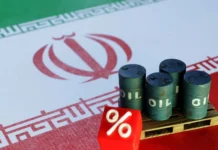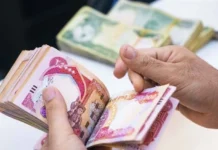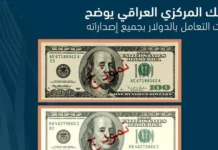Good Morning ,
Israel–Iran Conflict Could Trigger Economic Maelstrom Affecting Millions
The ongoing conflict between Israel and Iran threatens to severely disrupt global markets and may cascade into a broader geopolitical and economic crisis. At the heart of this threat lies the Strait of Hormuz, a critical chokepoint for global oil flows, which Iran is considering closing in response to Israeli military actions.
Iran–Israel Conflict Might Upend the World’s Oil Markets
Geopolitical tensions are once again shaking world markets. The confrontation between Iran and Israel, if escalated further, could drastically impact global oil supply, sending prices soaring and reviving oil’s title as “black gold.”
▪️ The Strait of Hormuz, gateway from the Persian Gulf, handles 20% of the world’s oil exports
▪️ Iran is threatening to close the strait in retaliation for Israeli military strikes
▪️ A closure would represent a global energy shock with vast ripple effects on industry and supply chains
According to reports, Sardar Esmail Kowsari, Commander of the Iranian Revolutionary Guard, has declared that Iran would make “the best decision with determination” regarding the potential closure of the Strait.
Security analyst Claude Moniquet warned that this move would be “a disaster for Europe,” impacting energy markets across the globe. A 20% reduction in global oil flow could spark:
- A massive spike in oil prices
- Disruptions to global supply chains
- Industrial slowdowns in Europe and Asia
Oil Already Reacting as Risk Mounts
The markets are already pricing in these geopolitical risks. Since the early bombings:
▪️ Oil futures have surged past $70, reaching as high as $77
▪️ Volatility is expected to increase as conflict risk grows
▪️ Crude oil prices could skyrocket if military escalation shuts down transport routes
The possibility of regional expansion—as other nations act to counterbalance the fallout of a closure—could magnify the economic turmoil, potentially triggering a global recession.
A Global Flashpoint with Far-Reaching Consequences
The ultimate outcome hinges on:
- Iran’s willingness to escalate
- Its military capacity to block the Strait of Hormuz
- The international community’s response to preserve oil flows
While nothing is certain, the risk of an economic chain reaction is substantial. Even short-term disruptions in Hormuz could cause multi-billion-dollar losses, especially in energy-dependent industries.
Bottom Line: The world watches closely as a regional military conflict risks morphing into a global economic crisis. A single act—like the closure of a vital oil corridor—could send shockwaves through financial markets, energy infrastructure, and geopolitical alliances.
@ Newshounds News™
Source: Bitcoin.com
~~~~~~~~~
Vietnam Legalizes Crypto Under New Digital Technology Law
Vietnam has officially legalized crypto assets with the passing of a landmark digital technology law. The legislation, passed by the National Assembly on June 14, brings crypto under regulatory oversight for the first time and positions the country as a rising digital innovation hub.
Vietnam Passes Sweeping Law to Recognize Crypto and Promote Tech
Effective January 1, 2026, the new Law on Digital Technology Industry marks a turning point for Vietnam’s treatment of digital assets and emerging technologies.
▪️ The law recognizes crypto assets, creating a regulatory framework for their use
▪️ It categorizes digital assets into virtual assets and crypto assets, excluding securities, digital fiat, or other financial products
▪️ The Vietnamese government will define business conditions, classifications, and oversight for each type
The legislation also includes provisions for cybersecurity and Anti-Money Laundering (AML) compliance, designed to align with Financial Action Task Force (FATF) standards. Vietnam has been on the FATF gray list since 2023, making this a likely strategic move toward regulatory rehabilitation.
A Strategic Play for Tech Leadership in Asia
Vietnam is not stopping at crypto. The law introduces comprehensive incentives to attract global tech players in sectors like:
- Artificial Intelligence (AI)
- Semiconductor development
- Digital infrastructure (e.g., chip design and AI data centers)
The government will provide:
▪️ Tax incentives and land-use benefits
▪️ Research and development (R&D) support
▪️ Workforce training subsidies
▪️ Integration of digital skills in national education policies
“With this move, Viet Nam has become the first country in the world to enact a standalone law specifically dedicated to the digital technology industry,” the government said.
Crypto Scams Continue Despite Regulatory Progress
Even as Vietnam steps into legal crypto territory, enforcement challenges remain.
▪️ In February 2025, police shut down BitMiner, a fake mining scheme posing as a Dubai-based platform. It defrauded over 200 victims of $157,300 through bogus mining packages.
▪️ In December 2024, Hanoi police stopped 300 potential victims from investing in Million Smiles, a scam promoting a fake token (QFS) linked to spiritual myths. The fraud had already stolen $1.17 million from over 100 businesses and 400 individuals.
Bottom Line: Vietnam’s bold move to legalize crypto and incentivize high-tech industries places it at the forefront of digital transformation in Southeast Asia. While challenges like fraud remain, the new law signals a major step toward modernization, international integration, and long-term tech leadership.
@ Newshounds News™
Source: Cointelegraph
~~~~~~~~~
Vietnam Joins BRICS as 10th Partner in Push for Stronger Global South Ties
Vietnam’s entry into the BRICS framework marks a major milestone in the bloc’s rise as a global power center. The move expands BRICS’ partner network to 10 nations, reinforcing its drive to reshape the global economic and governance architecture in favor of the Global South.
BRICS Welcomes Vietnam as 10th Partner
Brazil, which currently chairs BRICS, announced on June 13 that Vietnam has joined as the 10th official BRICS partner country. This decision follows the structure laid out at the 16th BRICS Summit in Kazan (October 2024), where the “partner-country” framework was introduced to allow strategic cooperation with aligned nations outside of full membership.
▪️ “The government of Brazil welcomes the decision of the Vietnamese government.”
▪️ Vietnam joins other partner nations: Belarus, Bolivia, Cuba, Kazakhstan, Malaysia, Nigeria, Thailand, Uganda, and Uzbekistan
The current full BRICS membership includes:
Brazil, Russia, India, China, South Africa, Saudi Arabia, Egypt, UAE, Ethiopia, Indonesia, and Iran
Vietnam’s involvement illustrates deepening ties with the Global South, emphasizing cooperation in:
- Economic development
- Multilateral governance reform
- Political and diplomatic coordination
Strategic Weight: Vietnam’s Role in BRICS Vision
Vietnam’s entry into BRICS reflects its increasing geopolitical and economic influence. Brazil highlighted this explicitly:
“With a population of almost 100 million and a dynamic economy deeply integrated into global value chains, Vietnam stands out as a relevant actor in Asia.”
Supporters of BRICS expansion say Vietnam contributes:
▪️ Economic scale and growth momentum
▪️ Innovation capacity across digital and industrial sectors
▪️ Strategic geographical positioning in Southeast Asia
While some critics argue that enlarging the bloc could strain policy coordination, advocates maintain that diverse perspectives like Vietnam’s can strengthen BRICS’ global relevance and diplomatic agility.
Bottom Line: Vietnam’s inclusion as a BRICS partner signals a consolidating shift in global power dynamics, boosting South-South cooperation and reinforcing a move toward a multipolar world order. As BRICS expands, the bloc’s ability to influence economic and governance norms continues to rise.
@ Newshounds News™
Source: Bitcoin.com
~~~~~~~~~
Seeds of Wisdom Team RV Currency Facts Youtube and Rumble
Newshound’s News Telegram Room Link
Follow the Roadmap
Follow the Timeline
Seeds of Wisdom Team™ Website






